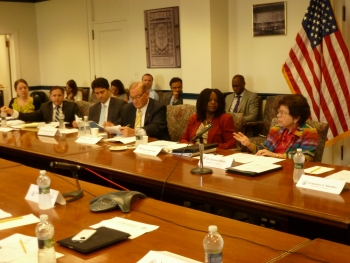Commerce Secretary John Bryson Visits Manufacturers in Tennessee
Today, U.S. Commerce Secretary John Bryson traveled to Cleveland, Tennessee, where he visited the Whirlpool Corporation for a ribbon cutting ceremony for their new, one-million square foot manufacturing facility. The $200 million factory is the largest premium cooking product manufacturing and distribution facility in the world, exemplifying the Secretary’s mission to help U.S. business build it here and sell it everywhere. The opening of the facility marked 100 years of Whirlpool manufacturing Made-in-America products.
While in Tennessee, the Secretary also made a stop in Chattanooga to visit the Volkswagen manufacturing plant, which builds the 2012 Passat. Volkswagen recently announced that they were adding a third shift to the operation at their Chattanooga plant in response to increased consumer demand, which will create over 700 additional jobs. This development is just one more example of the continued resurgence of the American manufacturing industry.
In fact, today, the Economics and Statistics Administration highlighted data showing that automakers are contributing heavily to the success of American manufacturing. The report finds that auto sales are at the highest level since the first quarter of 2008.









